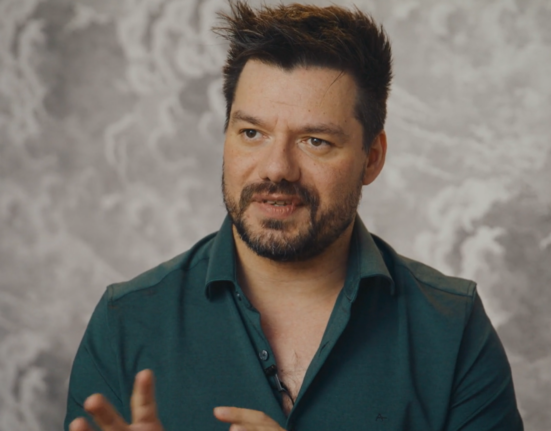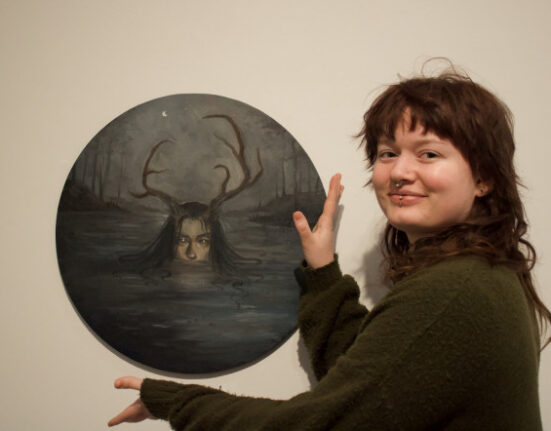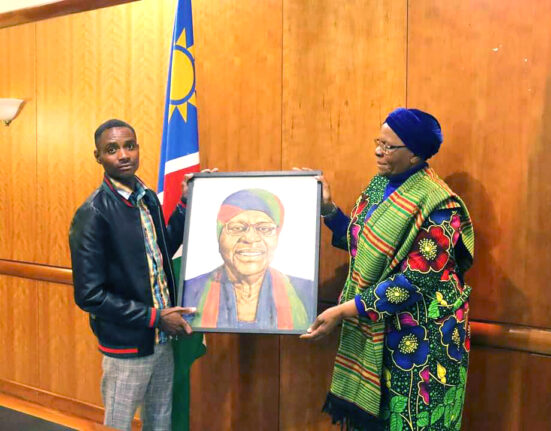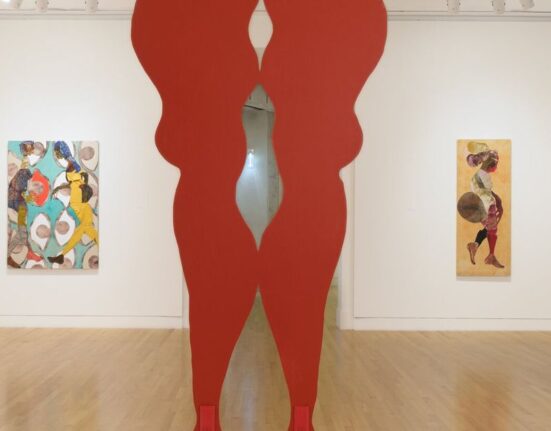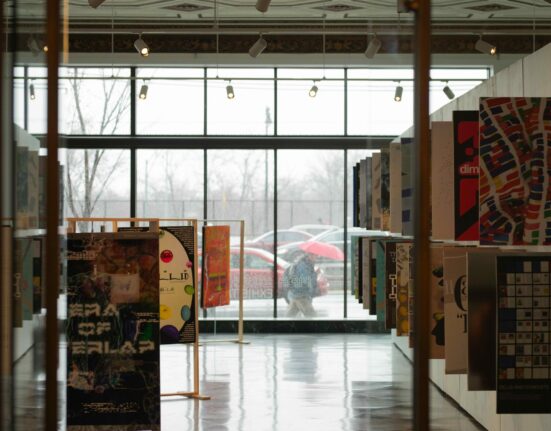At what point did you decide that you’d had enough of hawking and needed to focus on art?
Once I started getting the art gigs, I no longer saw the allure in the money that came from the hawking job. It became secondary in the sense that I only used it to pay for my fare and buy lunch. Otherwise, the money that was streaming in from the art was enough to sustain my lifestyle. Therefore, I decided to drop the hawking bit and dedicate all my time to art.
The following years were amazing. As I said, I was Patrick Mukabi’s assistant for the three years between 2016 and 2019. In 2020, however, Covid-19 struck, meaning that we were all on lockdown. Since there wasn’t much activity happening at the studio, it became unsustainable to pay rent, and so the studio was closed. We, therefore, resorted to working from home for the whole lockdown period.
What was your bounce-back plan?
Once normalcy resumed later in the year, I went on the lookout for exhibitions in places like the Nairobi National Museum as well as the Alliance Française. I was able to sell my artworks at a fair price and, thus, from that, I managed to get funds to start my own studio at the Karen Village.
I’d still create art at my home, and then use the Karen Village studio purely for exhibition or displaying my artworks. The goal was to grow independently and learn how things are run.
It was during June 2023 that I met Dorothy through a friend. She told me she has a space at Embe Creatives, where I could visit and offer classes as well as work. I readily accepted the offer and worked to the best of my ability. Safe to say, that’s where I currently am until this date.
Throughout this whole journey from one studio to another, have you had different art styles, say, thanks to the different circumstances in life in which you found yourself in?
When I started painting back in 2016, my first inspiration was basically drawing the ordinary things I saw around me, especially back in Soweto. These included paintings of kids playing, or a mkokoteni, or a house with rusty corrugated iron sheets for a roof.
As I mentioned earlier, after the opening of the city after the lockdown, I started exhibiting at city spaces, and through them, I made sufficient amounts of money. Amongst the things I gifted myself with the newly-earned money was a motorbike, with which I’d cycle from home to my studio at Karen Village. From this experience, my next style became that of people on motorbikes, and borrowing from Mukabi’s art-style, I made the people on motorbikes to be quite huge. Not for any particular reason but just to be humorous.
In 2021, I moved on to a new style I’d prefer to call ‘Freefall’. Here, I would simply paint people falling while in different positions. We fall a lot in life, and most times, it happens without our control. We fall while walking, we fall from motorbikes, we fall in love or even fall into depression. Therefore, I decided to experiment with that thought and put it into art.
Afterwards, I started drawing people standing in groups. First, it was just random groups of different people, but then I decided to pick out interesting people from those groups and worked on them. From them, I made paintings such as those of priests, altar boys or nuns.
The peculiar thing about my paintings is that all the people are faceless. Reason being that I want it to be an interactive experience for the viewer. That they may ask themselves whatever emotions the icon is portraying. It shouldn’t simply be a straight-forward thing for the viewer to just see and leave. Rather, it should boggle their minds and leave them deep in thought. Same thing with their other body gestures. For example, one of the priests is doing a Rastafarian hand symbol. The viewer, then, is left asking themselves how this could be the case.
How would you call your style of art?
Entitativity. This means the essence of groupings. My art pieces contain groups of people together. Your question should be what brought them together. There must have been an entity that did so. And that’s what my art is about.
Interesting response. Who are you grateful to the most in your current journey?
First and foremost, emphasis on the ‘most’. I am grateful to Patrick Mukabi. For hosting me in his studio, for teaching me the technique which I use to this day, and most importantly, for handing me my first gigs. I am because he is.
Next, I am grateful to Peterson Kamwathi for mentoring me throughout my journey. His pep talks really motivated me. I’m also grateful to Dorothy for providing me with the studio I currently use. Thanks to her, my artworks now have a roof over their heads (because they’re all people, gerrit?).
And finally, a big thanks to all the artists I worked with at Dust Depot for helping me in my art development. They include: David Muchai, Viktart, Sticky, Solo, Jimmy, BSQ and many others. These are the people whom I started working with even before I got dreadlocks on.
What are your aspirations for the future?
I really hope to have a bigger studio, where all my artworks can fit, and where people can regularly visit and learn. I would also love to exhibit outside Kenya, in international galleries such as those in Canada, the US and the UK. And finally, I’d love to travel a lot. Generally, to West Africa, but specifically, to Ghana.
Why, you may ask? Because Ghana has a very rich culture. You can even see that right from their clothing style; the kente cloth. I believe that Ghana would be a conducive environment for me to get creativity spurts and inspirations. Who knows? Maybe I’ll have my Pablo Picasso moment! Ha ha.
How can people find you?
My Twitter and Facebook handles are ‘Nyereremichael’, while my Instagram handle is ‘Nyereremichaelstudio’. They can also visit my studio here at Embe Creatives, Maji Mazuri Road in Lavington, right behind Jaffery Sports Club.


